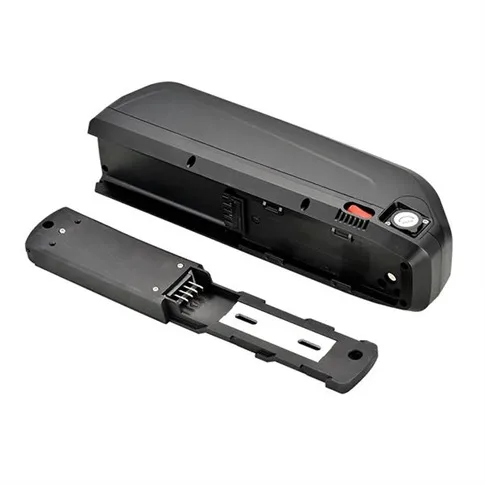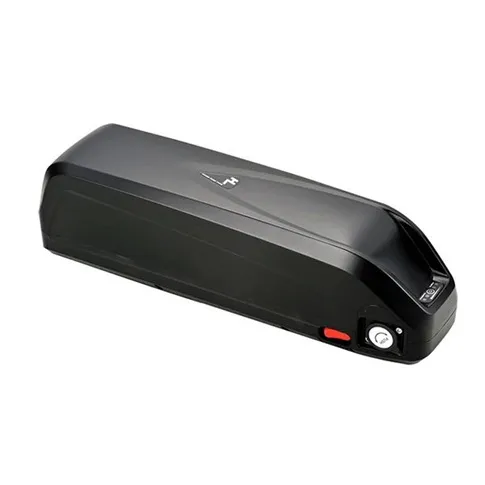Together for An Electric Future.
E-Bikes are becoming increasingly popular due to their ease of use, efficiency, and ability to handle different terrains. Whether you’re riding on urban roads or rugged off-road trails, an E-Bike battery can greatly enhance your cycling experience. However, selecting the right battery is crucial to maximizing performance, safety, and battery lifespan. Below, we will explore the top features to consider when choosing an E-Bike battery.
Not all E-Bike batteries are made the same. To ensure you’re getting a high-quality battery that meets your needs, it’s important to examine the following factors:
E-Bike batteries are built using multiple individual cells, often sourced from various manufacturers. The brand of these cells can have a significant impact on the battery's overall performance, lifespan, and safety. Leading cell manufacturers that supply cells for E-Bike batteries include:
Samsung
LG
Panasonic
Toshiba
While these are some of the most reputable brands in the industry, you may encounter E-Bike batteries made from lower-quality, generic cells. Opting for a battery with cells from a trusted manufacturer ensures better quality control, longer battery life, and improved safety standards. Always check the brand of the cells before making your purchase.
One of the most critical safety features of an E-Bike battery is fireproofing, especially since batteries are known to generate heat during operation and charging. A high-quality battery will have safeguards in place to prevent overheating and reduce the risk of fire.
In addition to fireproofing, weather resistance is equally important. E-Bike riders often encounter harsh environmental conditions like rain, mud, and snow. A battery with robust weatherproofing will protect internal components from water damage, corrosion, and other environmental stressors, ensuring long-term performance even in tough conditions.
Look for these certifications:
IP (Ingress Protection) Rating: Indicates the level of protection against water and dust.
Thermal Management System: Helps control temperature to avoid overheating.

A Smart Battery Management System (BMS) plays a crucial role in extending the life of your E-Bike battery. The BMS monitors and manages the charging and discharging process, ensuring the battery operates efficiently and safely. Additionally, it helps prevent common issues such as:
Overcharging: Prolonged charging can degrade the battery’s cells.
Over-discharge: Running a battery down too low can cause permanent damage.
Short Circuit Protection: Prevents damage in the event of electrical shorts.
Overheating Prevention: Reduces the risk of thermal damage to the battery.
Over Current Protection: Protects against power surges that could harm the battery.
Investing in a battery with a good BMS will not only extend its lifespan but also provide a safer riding experience.
The cycle count of an E-Bike battery refers to the number of full charge and discharge cycles it can undergo before its capacity diminishes. On average, most E-Bike batteries offer between 800 and 1,000 cycles. Batteries with higher cycle counts tend to last longer and provide better value for money.
Beware of batteries that claim to offer a very high number of cycles at an unrealistically low price. Similarly, a battery with a very low cycle count may not provide you with the long-term performance you expect. To get the best out of your E-Bike, aim for a battery that balances cycle count, quality, and cost.
Even with the best quality controls and features, E-Bike batteries can occasionally malfunction. For this reason, it's important to choose a battery that comes with a manufacturer’s warranty. Most reputable brands offer warranties that range from 6 months to 1 year, covering issues like faulty cells or manufacturing defects. Having this layer of protection gives you peace of mind and ensures that any potential issues can be resolved without incurring additional costs.
Pro Tip: Always read the terms of the warranty carefully to understand what is covered.
When purchasing an E-Bike battery, consider whether it is compatible with various models of E-Bikes. Some batteries are specifically designed for a particular E-Bike, while others are more versatile, offering compatibility across multiple models and brands.
This feature is especially beneficial if you own multiple E-Bikes for different riding conditions (e.g., road versus off-road), as it allows you to interchange batteries between bikes. However, before purchasing, always double-check compatibility to avoid issues later.
Capacity is one of the most important aspects to consider. Measured in watt-hours (Wh), battery capacity determines how far your E-Bike can travel on a single charge. For casual commuting, a battery with a lower capacity may suffice, but for longer rides or off-road biking, you'll need a battery with higher capacity.
300-500Wh: Suitable for short-distance commuting.
500-700Wh: Ideal for mid-range rides or mixed road/off-road usage.
700+ Wh: Best for long-distance or high-performance E-Bikes.
Voltage (V) and current (A) ratings are crucial for understanding the power output of your E-Bike battery. Higher voltage usually means more power and speed, while current impacts the overall torque and acceleration. Match these specifications with your E-Bike's requirements to ensure smooth performance.

Q:How long do E-Bike batteries last?
A:On average, E-Bike batteries last 3 to 5 years, depending on usage, care, and cycle count.
Q:Can I charge an E-Bike battery with a standard charger?
A:No, you should only use the charger recommended by the manufacturer to ensure safe and efficient charging.
Q:What should I do if my E-Bike battery overheats?
A:If your battery overheats, stop using it immediately, and consult the manufacturer's instructions. Never continue using a battery that shows signs of overheating or damage.
When selecting an E-Bike battery, it's essential to consider more than just the price. Factors like brand reputation, fireproofing, weather resistance, smart battery management systems, and warranty can make a significant difference in safety and performance. By focusing on these aspects, you can ensure a reliable and enjoyable E-Bike experience for years to come.
If you need further assistance in choosing the best E-Bike battery or have specific questions about our products, feel free to get in touch with our team of experts.